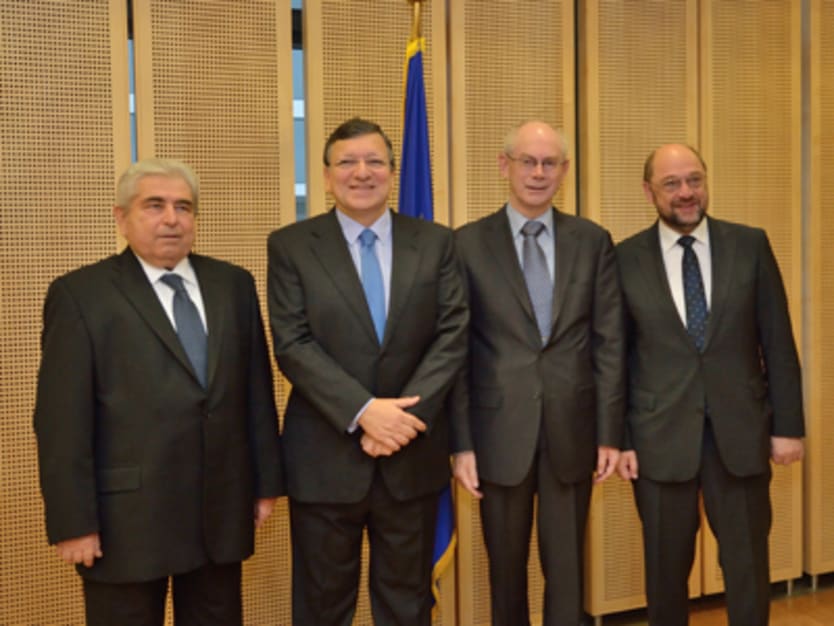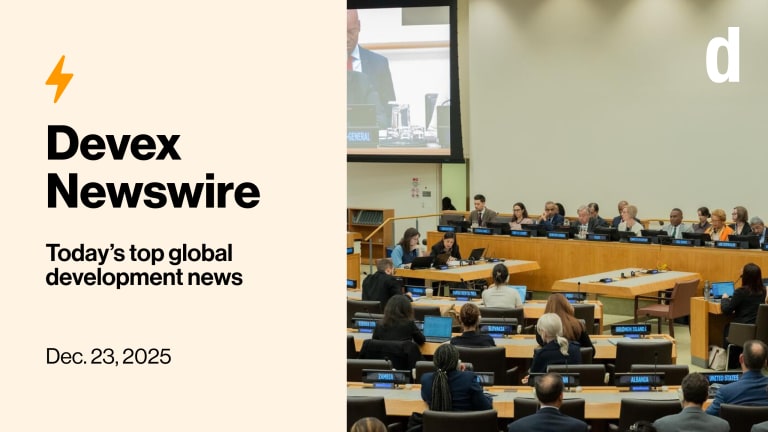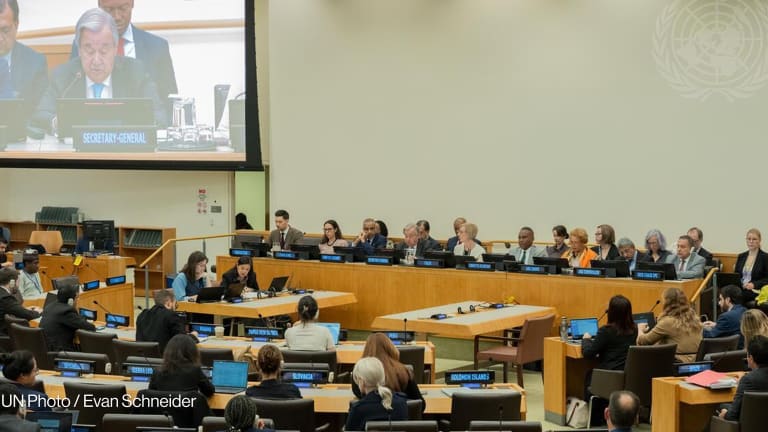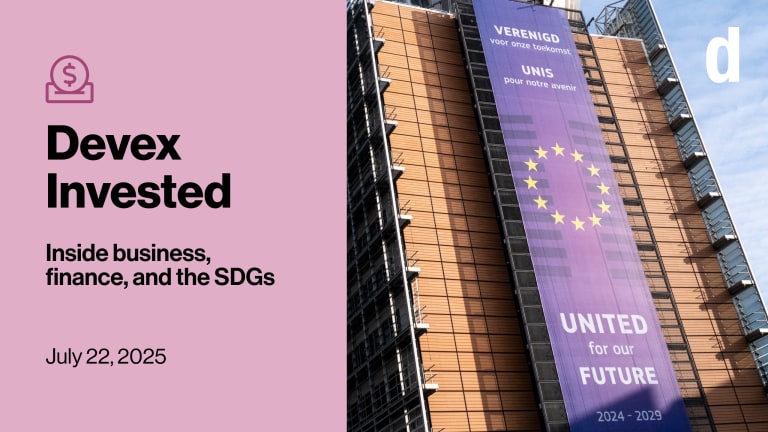
Aid groups have ramped up lobbying ahead of a crucial budget negotiations showdown this week in Brussels, to ensure foreign aid won’t become collateral damage.
The General Affairs Council is convening today, Nov. 20, to prepare for the Nov. 22-23 European Council meeting, when the 2014-2020 Multiannual Financial Framework will be deliberated. Will an agreement be reached? Not likely, according to Oxfam EU policy adviser Nicolas Mombrial.
What makes negotiations over a proposed €1 trillion ($1.27 trillion) budget contentious, Mombrial explained to Devex, is that EU member states and institutions want different things.
The United Kingdom, for instance, has said it will veto any agreement that increases the overall budget more than 2 percent. Development ministers from Denmark and Slovakia, meanwhile, are urging EU member states to protect the aid budget from deep cuts.
The European Commission wants to implement a 5 percent increase in the overall budget; the European Parliament feels the budget needs to be raised above the 2013 ceiling. But the Council of the European Union, in a proposal released Oct. 20, seeks €50 billion in “savings” across all budget accounts, including external assistance. Foreign aid cuts could amount to as much as €9.6 billion, aid groups fear, including a €3.3 billion cut to the European Development Fund, the largest part of the EU aid budget that targets African countries - an 11 percent cut, more than the 7 percent overall EU budget cut that’s been proposed.
Mombrial also presented another challenge: Foreign aid is being used by a number of EU member states as a “bargaining chip” for or against “more important things” such as the Common Agricultural Policy and the cohesion policy.
All these make it likely for negotiations to end in a “deadlock,” Mombrial said. Last week’s deliberations over the 2013 budget don’t bode well for the council: Parliament negotiators walked out of the meeting following disagreement over a proposed €9 billion increase in the 2013 budget. The parliament’s draft amendment seeks, among others, an additional €23.7 million for humanitarian aid programs, €17 million for food aid, €14.4 million for health programs and €12 million for the European neighborhood policy.
And even if the majority of negotiators come to an agreement, the European Parliament can veto this if the budget they’ve settled on is significantly lower than the parliament’s proposal.
Diplomats are reportedly already expecting negotiations to fail, according to The New York Times. But Mombrial said European Council President Herman Van Rompuy is committed to reaching an agreement, even if that means negotiations would extend well beyond the weekend. He noted, however, that discussions are only about top-line numbers. Allocations for instruments under each section of the budget will likely be decided next year, Mombrial added.
If negotiations fail, the European Union will use “exactly the same amount as 2012” until an agreement is reached. For the aid community, this will make planning multiyear foreign aid projects much more difficult as organizations won’t know how much they will be getting this year or the next.
Despite all this, Mombrial is hopeful foreign aid will gain a modest increase over the previous seven-year budget. But the aid community needs to “gather force and fight to defend the budget.”
Read more development aid news online, and subscribe to The Development Newswire to receive top international development headlines from the world’s leading donors, news sources and opinion leaders — emailed to you FREE every business day.








